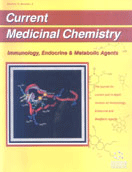Abstract
Thyroid hormones (THs) play a key role during development, especially of the Central Nervous System and in adulthood in homeostasis control. They are regulated by the dynamic interrelationships between the hypothalamus, pituitary and thyroid gland. It has been shown that a large number of industrial chemicals could affect the hypothalamic-pituitary-thyroid axis and disrupt the thyroid system, which is a cause of concern, because these alterations could induce severe neurological effects during development as well as alterations in homeostasis. Classically, these chemicals have been identified and classified as toxic agents due to their ability to alter TH levels. However, other mechanisms have been shown to contribute to thyroid system disruption, such as interference with thyroid hormone receptors or enzymes or transporters that play an important role in mediating the action of these hormones. The aim of this chapter is to provide a review of the effects of industrial chemicals on the thyroid system and the mechanisms through which they induce these effects.
Keywords: Acrylamide, benzophenone-2, bisphenol A, dioxins, nonylphenol, octyl methoxycinnamate, PBDEs, perchlorate, perfluorinated chemicals, phthalates, polychlorinated biphenyls, resorcinol, sodium chlorate, thiocyanate, tributyltin.





















